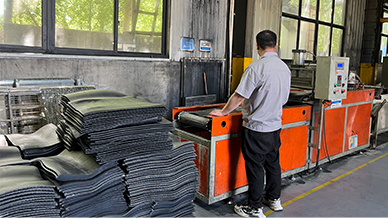Fueling Insights Exploring the Soft Fuel Industry and Its Impact
Nov . 08, 2024 10:08 Back to list
Fueling Insights Exploring the Soft Fuel Industry and Its Impact
Understanding Soft Fuel Lines Their Importance and Applications
In the realm of engineering and automotive design, the term “soft fuel line” refers to flexible tubing used in fuel delivery applications. Unlike rigid fuel lines made from metals or hard plastics, soft fuel lines are typically constructed from materials such as rubber or specialized polymers. This article explores the significance, advantages, and practical applications of soft fuel lines in various industries.
What Are Soft Fuel Lines?
Soft fuel lines are designed to transfer fuel from one part of a vehicle or machinery to another. Their flexibility allows for easier installation in tight spaces and their ability to bend without breaking makes them an attractive option in dynamic environments where vibrations and movements occur. Soft fuel lines can be found in a wide range of applications, from automotive engines to small engines in lawn mowers and generators.
Advantages of Soft Fuel Lines
1. Flexibility The primary advantage of soft fuel lines is their flexibility. Unlike hard lines, which can be difficult to install in confined spaces, soft lines can bend, twist, and route around obstacles with relative ease. This makes them particularly useful in automotive applications where space is often limited.
2. Lightweight Soft fuel lines are generally lighter than their rigid counterparts. For vehicle manufacturers, using lighter materials can contribute to improved fuel efficiency and overall vehicle performance. The reduction in weight plays a critical role in meeting stricter fuel economy standards that many countries enforce.
3. Cost-Effective Soft fuel lines are often less expensive than rigid alternatives. The manufacturing process has become more efficient over the years, making soft fuel lines an economical choice for producers looking to reduce costs without sacrificing quality.
soft fuel line

4. Resistance to Corrosion and Chemicals Many soft fuel lines are engineered to withstand exposure to various fuels, oils, and chemicals without degrading. This resistance to corrosion ensures longevity and reliability, reducing the need for frequent replacements and maintenance.
5. Easy to Replace In case of wear and tear or damage, soft fuel lines are generally easier and faster to replace compared to rigid lines. This can significantly lower maintenance costs and downtime in vehicles and machinery.
Applications of Soft Fuel Lines
Soft fuel lines are ubiquitous in modern machines. In the automotive industry, they are commonly used to transport gasoline, diesel, and other fuels from the gas tank to the engine. Their ability to withstand varying pressures and temperatures makes them suitable for high-performance vehicles, which often experience extreme conditions.
Aside from vehicles, soft fuel lines are crucial in marine applications, where vessels must navigate rough waters. The flexibility of the lines ensures they can absorb the movements of the boat while maintaining a safe transfer of fuel. Additionally, these lines are used in small machinery, gardening tools, and even in aviation for fuel delivery systems in small aircraft.
Conclusion
Soft fuel lines may be small components, but their impact on vehicle and machinery performance cannot be overstated. With advantages ranging from flexibility and lightweight construction to resistance against damaging substances, they have proven to be indispensable in various industries. As technology evolves and the demand for efficient fuel systems increases, soft fuel lines will continue to play a pivotal role in the development of more advanced fuel delivery solutions, ensuring safety, performance, and reliability in our everyday devices.
